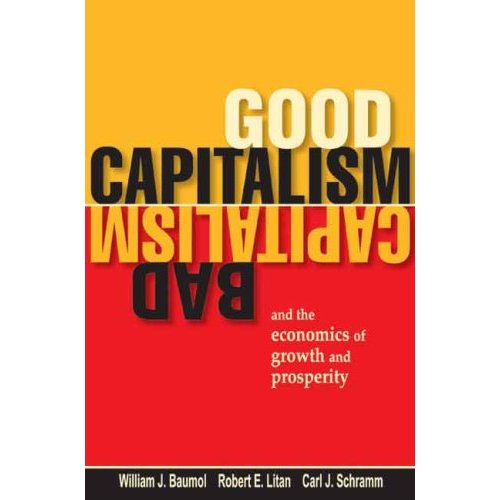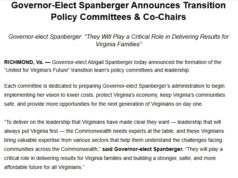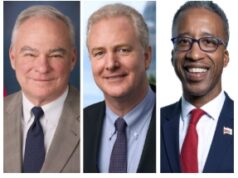
The darkest gray of extreme free market capitalism in the U.S. is the idea that subsists under this economic system that the profit-motive is the overriding consideration in human affairs, trumping all other social concerns. Under such a system of economic beliefs, one who takes this or that action is only condemned if the “return” has not been maximized relative to all other possibilities that the individual has to choose from. Yes, extreme free market capitalism discourages discrimination on all grounds except from that which no profit can be made. But extreme free market capitalism also dissuades individuals from taking objects that have not traditionally been subjected to the economic gaze (e.g. wetlands, endangered species, human well-being, etc) and placing these objects at the top of their economic calculations, if they are placed at all. An inevitable consequence of this line of economic thinking is preventable oil spills, non-fuel efficient cars, a continued reliance on fossil fuels, and so on.
I use the term “extreme” because the form of active-state capitalism that has developed in the U.S. through trial and error is not, of course, free market capitalism at its most radical. Through trial and error, our country has democratically concluded that free markets, left to their own, will reap irreparable and/or catastrophic economic and social turmoil. Adam Smith, the father of modern capitalism, understood that left to its own, wealth and power would accumulate among a minority in the marketplace and individual freedom would find itself in a strait-jacket of tyranny. Hence the rise of Marxism as the consequence of “unfettered” capitalism led directly to the toiling masses of Europe’s major cities (as well as its rise in academia following the global financial crisis beginning in late 2008).
The reason I am even discussing this issue is because in our own time the conversation has shifted dramatically towards defending the “welfare” state instead of remaining on the offensive in what has proved to be a rather effective method of economic governance. The so-called “nanny” state has acted as a barrier between the uninhibited ambitions of America’s wealthiest and those among the least fortunate of our society. As a country, we have come increasingly to believe that poverty is a personal defect of some kind precisely at a point in our country’s history where social mobility is slowing down. For some individuals poverty is the result of continuous poor decisions made in life. For others, poverty is the consequence of being born in the wrong place and the wrong time.
If America is one body, it cannot leave part of itself to rot. Eventually the infection will spread (my apologies for the metaphor). This, then is the self-interested argument: by helping the poor we are helping ourselves. This is the Ancient Republican argument: the soul of a society is judged by how its members treat one another. It is the Golden Rule on a societal level. It was the correct then. It’s correct now. We turn away from it only at the risk of undermining the foundations of our society.





![[UPDATED with Jim Ryan’s Letter] In Response to Youngkin’s “Sad, Whiny” Letter to Spanberger About UVA, VA Senate Majority Leader Surovell Says He’s “truly embarrassed for Gov Youngkin…After 4 yrs he has no understanding of basic VA govt structure”](https://bluevirginia.us/wp-content/uploads/2025/11/youngkinspanuva3-238x178.jpg)







![[UPDATED with Jim Ryan’s Letter] In Response to Youngkin’s “Sad, Whiny” Letter to Spanberger About UVA, VA Senate Majority Leader Surovell Says He’s “truly embarrassed for Gov Youngkin…After 4 yrs he has no understanding of basic VA govt structure”](https://bluevirginia.us/wp-content/uploads/2025/11/youngkinspanuva3-100x75.jpg)